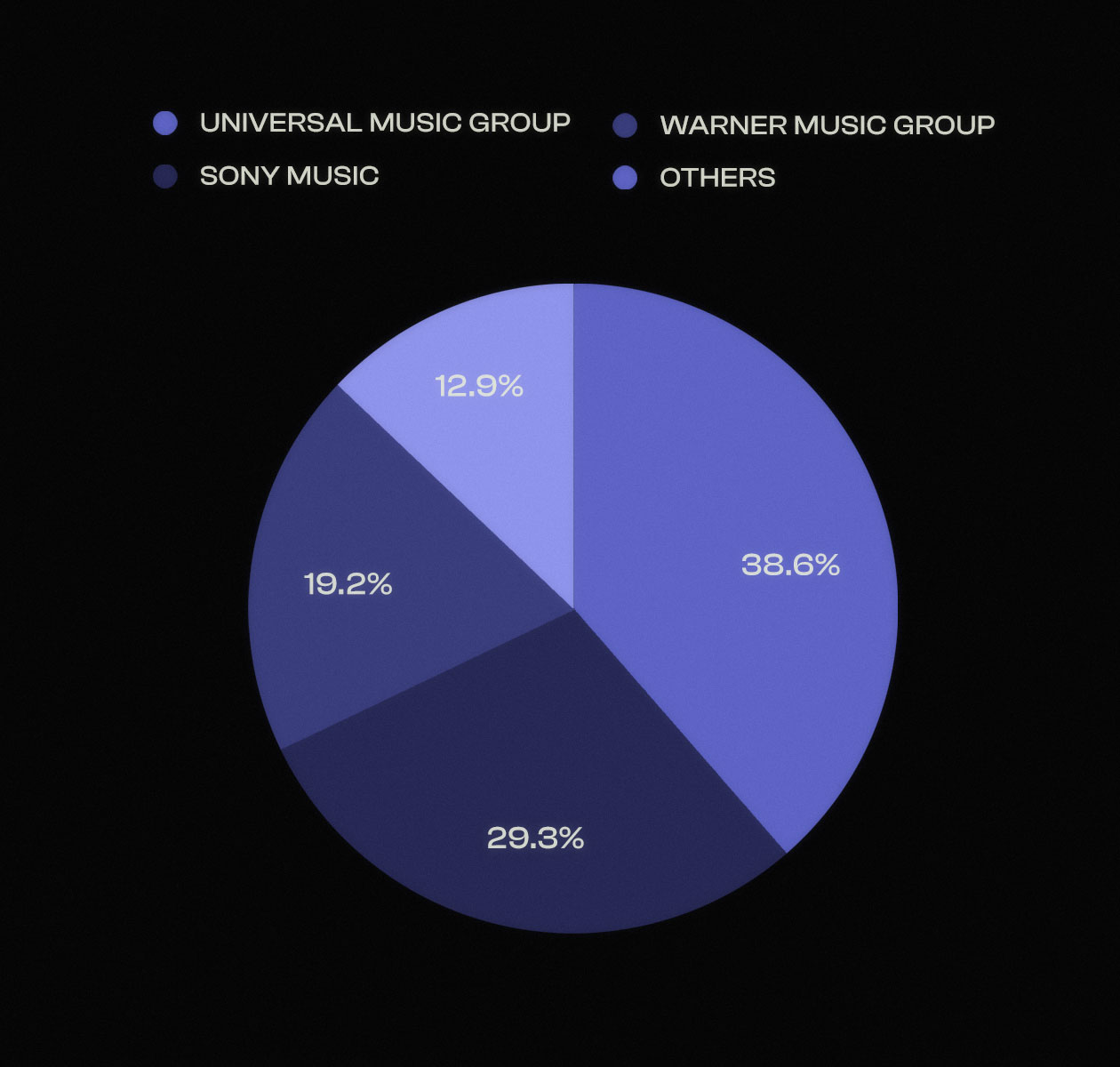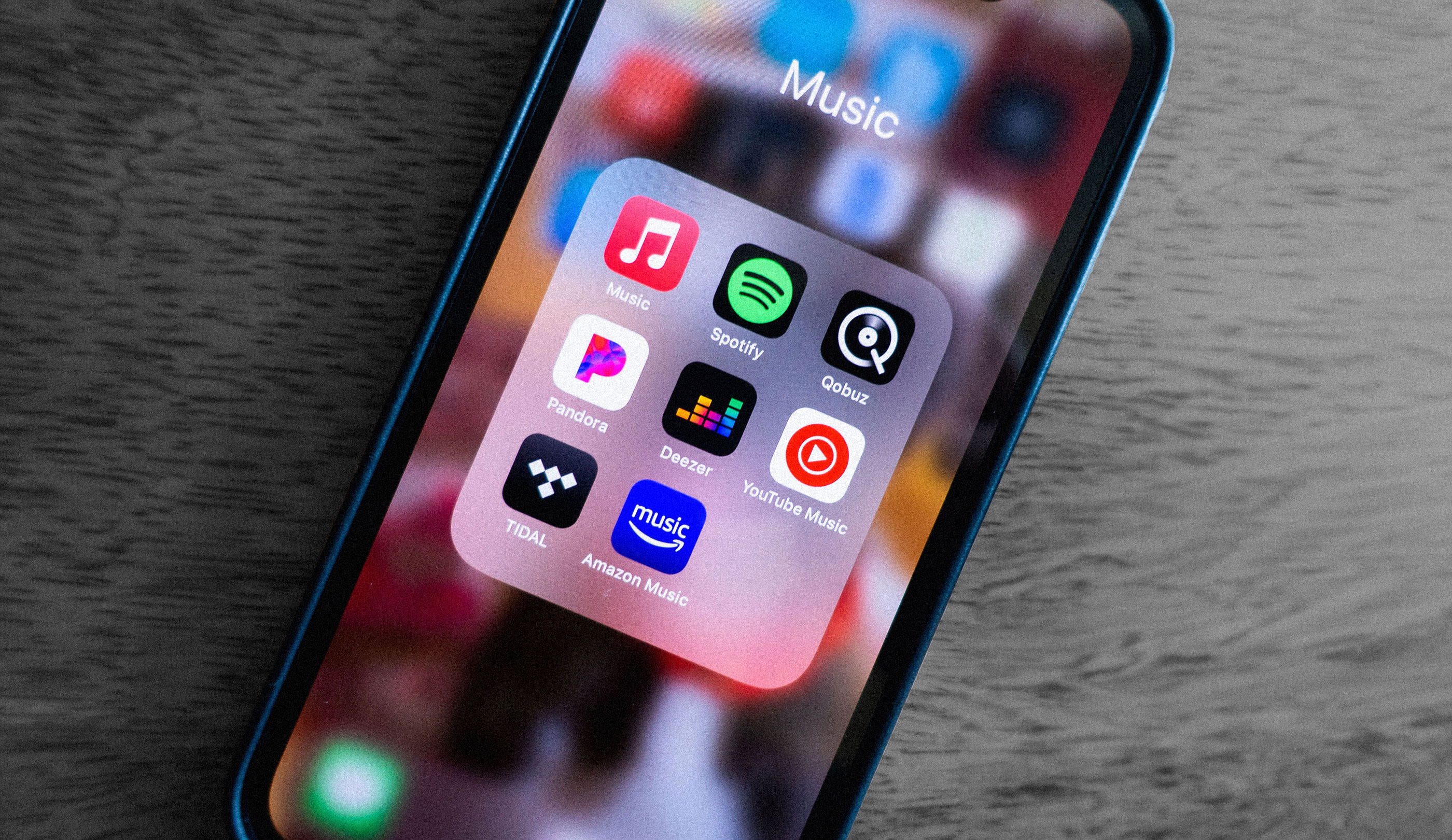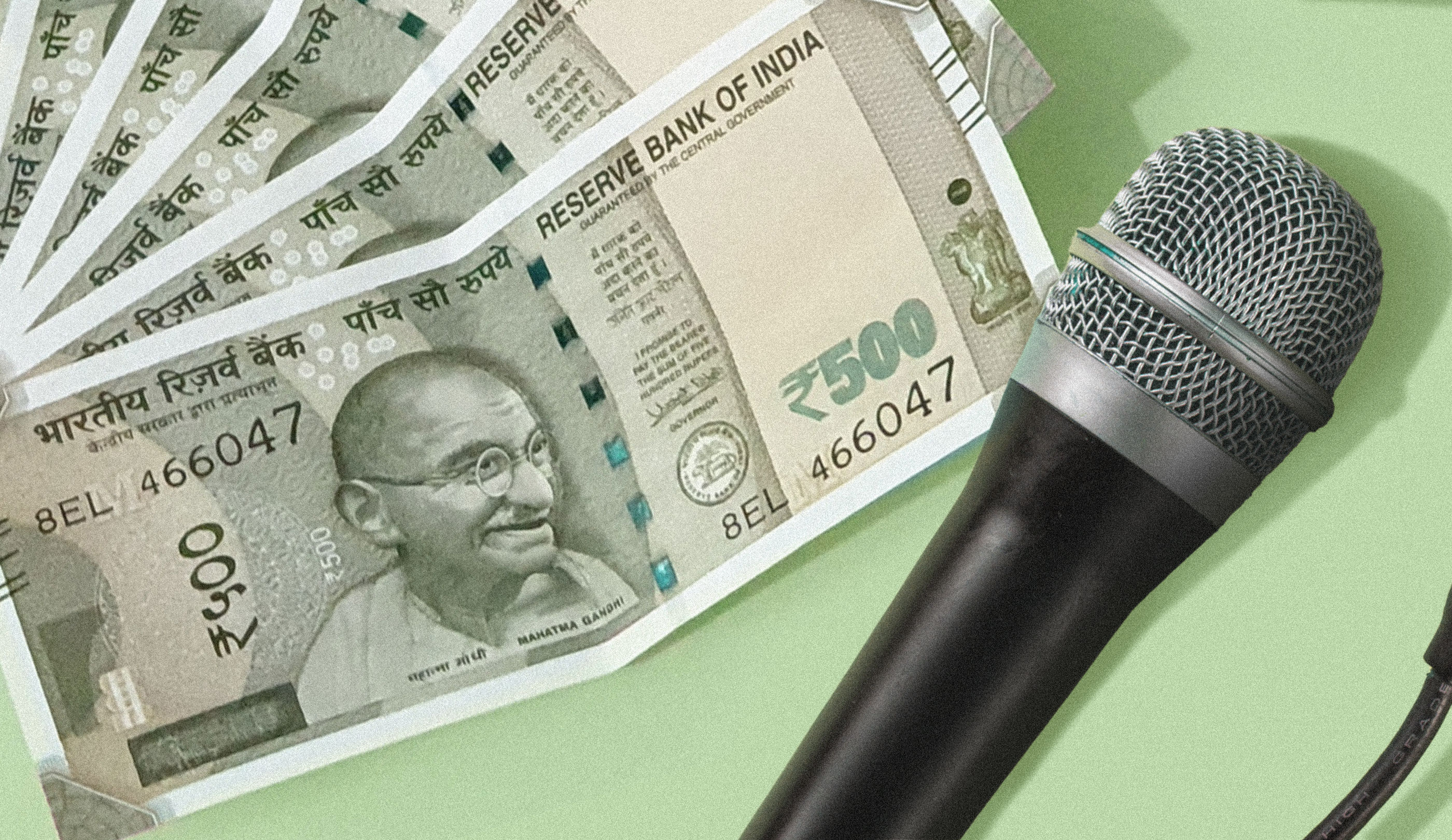Understanding Music Distribution: A Guide for Artists
You've poured your heart and soul into creating incredible music that deserves to be heard by the world.

How do you ensure that your music reaches the ears of eager listeners everywhere? That's where music distribution comes into play. In this blog, we will explore the ins and outs of music distribution, its significance for artists like yourself, and the various methods and platforms available to share your melodies with the world. Whether you're an experienced musician or just starting out, understanding music distribution is vital for your success story.
What is Music Distribution?
Music distribution is the process of making your music available to a wide audience through different channels and platforms. It's like setting up a buffet of auditory delights for music lovers to enjoy.
Music distribution has been an integral part of the music industry since its inception. However, this industry has undergone significant transformations throughout the years, leading to drastic changes in its workflow and business models. The evolution of music distribution, from the days of King's Darbar to the current era of online streaming, has been remarkable.
In the early 2000s, the dominance of CDs and physical records started to wane, gradually giving way to new digital formats. The advent of online streaming platforms revolutionized the way music is consumed and distributed. Today, the era of CDs and physical records is nearly obsolete, as they account for only a fraction of global recording revenue, around 10%. Streaming has undeniably become the dominant force in today's music industry, and a closer look at the data reveals its overwhelming influence. The International Federation of the Phonographic Industry (IFPI) provides compelling insights into the rise of streaming. In 2020, streaming revenue accounted for a remarkable 62% of the global recorded music industry's revenue, surpassing both physical sales and digital downloads.
Prepare to be astonished by the staggering number of users on the streaming platform.
- Spotify: With a staggering 356 million monthly active users globally, Spotify stands as a dominant force in the streaming industry.
- Apple Music: Boasting 108 million monthly active users worldwide, Apple Music benefits from its integration with Apple's ecosystem of devices.
- Amazon Music: With 82.2 million monthly active users globally, Amazon Music draws upon the extensive customer base of Amazon. Additionally, it has 30 million monthly paid active users worldwide.

The growth in the number of paid music streaming subscribers has been nothing short of impressive. As per the IFPI's records from 2021, there are now over 450 million paid music streaming subscribers worldwide. This figure represents a substantial increase over the years and serves as a testament to the immense popularity and demand for streaming services. Overall, the landscape of music distribution has transformed immensely over time, with digital platforms becoming the primary channel for reaching audiences. As the industry continues to evolve, it is essential for musicians and industry professionals to adapt their distribution methods accordingly, taking into account the preferences and trends specific to different regions.
The Importance of Music Distribution:
Music distribution is crucial for artists to monetize their art and generate income. It enables global reach, fan base growth, and revenue generation in the digital age. By sharing your music through distribution platforms, you can connect with a worldwide audience, earn royalties, streaming revenue, merchandise sales, and opportunities for live performances. It's not just about sharing your masterpiece; it's about turning your passion into a sustainable career where your art brings both artistic fulfillment and financial rewards.
The Role of Music Distribution Companies:
In today's digital landscape, sharing your music with a global audience may seem as simple as uploading a file online. With that in mind, you might wonder why music distribution intermediaries are still relevant. Can't artists just do it themselves? Well, the truth is that music distributors play crucial roles in the recording industry, encompassing three key responsibilities:
1. Maximizing Reach on Digital Service Providers (DSPs):
While platforms like Bandcamp and SoundCloud cater to artists directly, they only scratch the surface of the numerous digital distribution channels available. Streaming services such as Spotify, Apple Music, Deezer, alongside social media platforms like Instagram and TikTok, offer immense potential for connecting with listeners worldwide. To ensure your music reaches the broadest possible audience across multiple platforms on release day, establishing a well-structured and efficient technological framework is crucial.

Most DSPs have restrictions that prevent artists from directly uploading their music, necessitating the involvement of distributors or aggregators. Even Spotify, after testing its direct upload program, concluded that "music distribution is best handled by partners." DSPs prefer collaborating with distributors to ensure consistent metadata and smooth payout distribution.
Additionally, each DSP often follows its unique set of metadata standards, making it impractical to manage the intricacies of digital music distribution manually. Distributors, armed with their expertise and advanced technology, adeptly navigate these complexities to streamline the process effectively.
2. The Role of Distributors in Digital Music Royalty Payments:
In the digital music era, distributors play a crucial role in ensuring fair royalty payments to artists and rights owners. As streaming platforms like Spotify, Amazon Music, and Apple pay artists based on the number of streams, the complexities of handling unstandardized metadata and managing administrative costs can be overwhelming for these platforms.

Distributors serve as intermediaries between streaming platforms and individual artists. They have the expertise and infrastructure to harmonize diverse metadata formats from different platforms, ensuring accurate attribution and compensation for music creators. Additionally, distributors alleviate the administrative burden associated with royalty payments by efficiently processing data, identifying rights owners, and distributing earnings.
Note: Composition and publishing royalties follow separate pathways through collective management organizations (CMOs), performance rights organizations (PROs), and publishers.
3. Evolving Distribution Strategies and Leveraging Trade Marketing Opportunities:
Trade Marketing Strategies in the Digital Age: Trade marketing has evolved in the digital era. Previously, it involved collaborating with record stores for physical release placement. Today, the focus is on securing prominent positions on streaming platforms.
Streaming platforms play a crucial role in maximizing artist exposure. However, due to the large number of artists, platforms can't engage with each manager or label individually. Distributors act as "bulk representatives" and negotiate with platforms on behalf of clients.
While the artist's team develops the distribution strategy, it's the distributor who executes it by working with DSPs. Distributors pitch releases for advantageous placements, maximizing artist visibility.
The level of involvement in trade marketing varies among distributors. Some provide promotional tools and best practices, while others offer dedicated playlist pluggers and consultants to shape strategies effectively.
By adapting to the digital landscape and leveraging trade marketing opportunities, artists can enhance visibility and reach a wider audience online.
4. Metadata and Organization: Music distributors play a crucial role in ensuring accurate metadata for your music. This includes essential information such as song titles, artist names, album details, and genre tags. By meticulously organizing your music and providing comprehensive metadata, distributors enhance the discoverability of your songs, making it easier for listeners to find and enjoy your music.
Note: Metadata is the descriptive information associated with a song, including details like title, artist name, genre, and more. When submitting music for distribution, artists should focus on accuracy, completeness, and consistency of their metadata. They should provide accurate and complete information, maintain consistent formatting, choose appropriate genres, arrange tracks correctly, use quality album artwork, set release dates, ensure rights and ownership, and utilize track descriptions to engage listeners. These pointers help organize and categorize music while facilitating its discovery on different platforms.
5. Global Reach: Collaborating with a music distributor opens doors to a global audience. Distributors have established partnerships and agreements with international platforms, enabling artists to transcend geographical boundaries and connect with listeners worldwide. This global reach allows artists to expand their fan base, explore new markets, and potentially tap into additional revenue streams generated by international listeners.
6. Support and Guidance: Music distributors often offer valuable support and guidance throughout the distribution process. They understand the intricacies of the industry and can assist artists with navigating the complexities of digital music distribution. Whether it's providing educational resources, answering queries, or offering dedicated customer support, distributors are there to address artists' needs and ensure a smooth distribution experience.
7. Additional Services: Beyond the core responsibilities, many music distributors offer a range of additional services to further support artists' careers. These services may include physical distribution of formats like CDs and vinyl records, synchronization licensing for placements in films, TV shows, and advertisements, and integration of merchandise sales. These value-added services empower artists to explore multiple avenues for exposure, revenue generation, and overall artistic growth.In Short, music distributors remain essential in the recording industry. They handle the technical aspects of distribution, ensure accurate royalty allocation, and support artists in trade marketing endeavors to secure advantageous positions on streaming platforms. With their expertise, industry relationships, and technological capabilities, they serve as indispensable partners for artists navigating the complex landscape of digital music distribution.
The Costing of Music Distribution Services:
The cost of music distribution services in India can vary depending on various factors, including the platform or service provider you choose, the scope of distribution, and the specific features and services included in the package. Here are some general insights into the costing of music distribution services in India:
- One-time Fee: Some distribution platforms charge a one-time fee to upload your music and make it available on various streaming platforms. This fee can range from a few hundred to a few thousand Indian Rupees, depending on the platform and the level of service they offer.
- Commission-based Model: Certain distribution services operate on a commission-based model, where they take a percentage of the revenue generated from your music. This commission can range from 10% to 30% or more, depending on the platform and the specific agreement you have with them.
- Subscription Plans: Some music distribution platforms offer subscription plans, where you pay a monthly or yearly fee to access their distribution services. These plans often come with additional features and benefits, such as advanced analytics or promotional tools. The subscription fees can vary depending on the platform and the package you choose.
- Additional Services: Some distribution services may offer additional services for an extra cost. These can include marketing and promotion packages, playlist pitching, sync licensing, or physical distribution options. The pricing for these additional services can vary widely depending on the service provider and the specific requirements.
- Customized Pricing: Some distribution platforms may offer personalized pricing options tailored to the specific needs of artists or labels. This could involve negotiating a pricing structure that suits your budget and requirements. Customized pricing ensures flexibility and enables a more tailored approach to meet individual needs.
- Freemium Models: Certain distribution services offer free basic packages with limited features, while charging for premium or enhanced services. Artists can choose to upgrade to a paid plan to access additional benefits, such as increased distribution reach or priority support.
- Exclusive Agreements: In some cases, distribution services may offer exclusive agreements where they provide additional support and promotion in exchange for an upfront fee or a higher revenue share. These exclusive agreements often come with specialized services and increased exposure opportunities.
It's important to note that these are general guidelines, and the actual pricing can vary significantly between different distribution platforms and service providers in India. It's advisable to research and compare the offerings of different platforms, read user reviews, and consider your specific needs and budget before choosing a music distribution service.

Unleash Your Musical Mastery with MADverse: The Ultimate Music Distribution Service
Now go forth, musical maestro, and conquer the world with your epic tunes! And if you're looking for the best free music distribution to all platforms, connect with MADverse and enjoy music distribution for your masterpiece. Here's how you can release your music with us:
1. Fast Approval: Get your releases approved within 24 hours of submission. We promptly address any submission issues by reaching out to artists for necessary corrections.
2. Swift Store Ingestion: Once approved, your music is sent to streaming platforms and online stores, ingested within 3-5 days for maximum exposure.
3. Simplified Royalty Management: We consolidate earnings from different partners over the first three months of your release, providing clear and comprehensive statements.
4. Easy Payouts: When you reach the payment threshold, simply enter your bank details and cash out your earnings hassle-free.
Experience a seamless music release process with MADverse. Release your music today and let it soar to new heights.
Conclusion:
Music distribution is a game-changer for artists. It allows your musical tornado to sweep across the globe, captivating hearts and souls with your melodies. Remember, distribution is just the beginning of your adventure. As the industry continues to evolve, it is essential for musicians and industry professionals to adapt their distribution methods accordingly, taking into account the preferences and trends specific to different regions. Keep creating exceptional music, nurture your fan base, and adapt to the ever-changing music industry to thrive as an artist.
Check out our latest blog: Unravelling Copyright Law in India - Safeguarding Your Musical Creations



.jpg)
